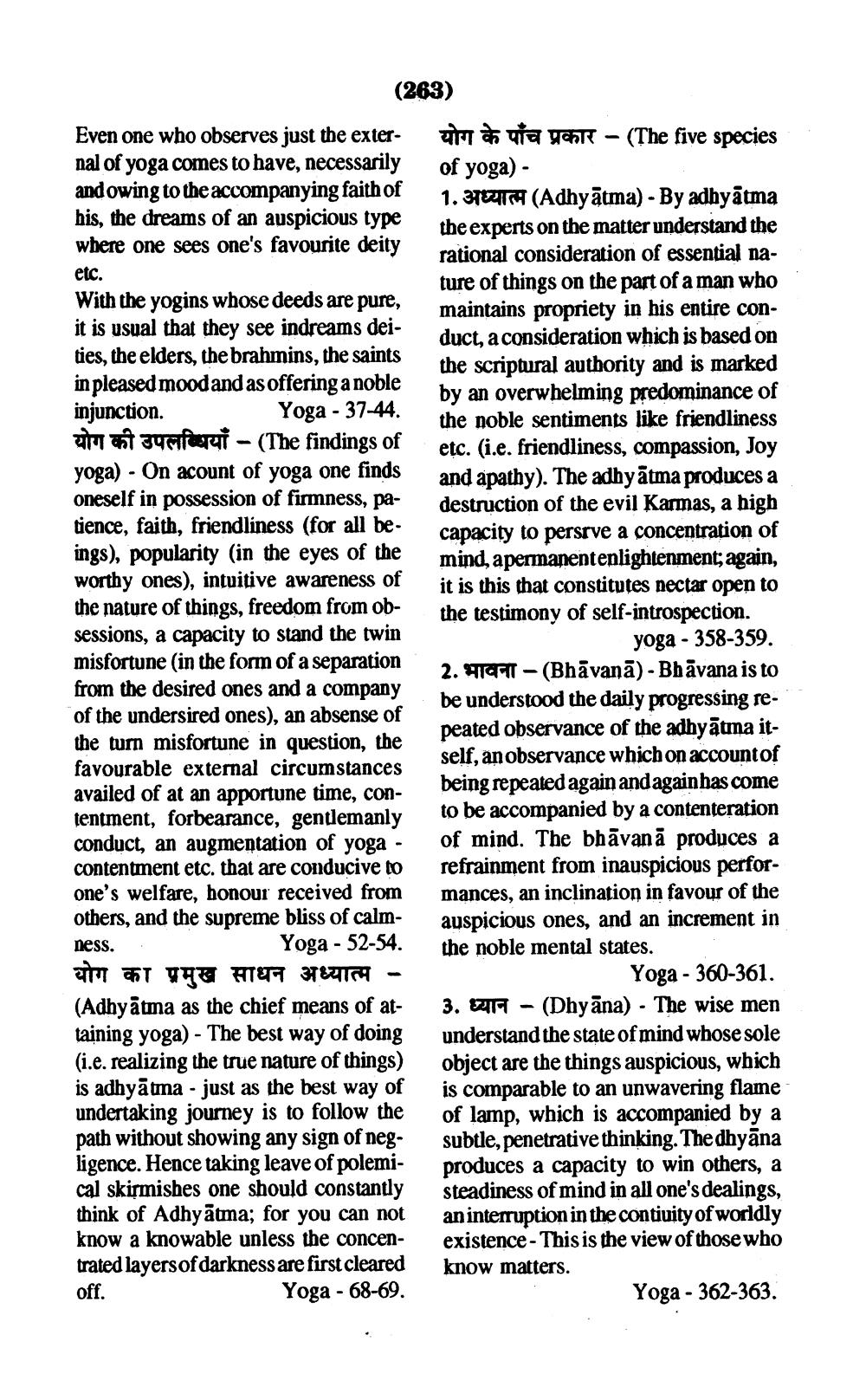________________
(263)
Even one who observes just the exter- nal of yoga comes to have, necessarily and owing to the accompanying faith of his, the dreams of an auspicious type where one sees one's favourite deity
etc.
With the yogins whose deeds are pure, it is usual that they see indreams deities, the elders, the brahmins, the saints in pleased mood and as offering a noble injunction.
Yoga - 37-44. योग की उपलब्धियाँ - (The findings of yoga) - On acount of yoga one finds oneself in possession of firmness, patience, faith, friendliness (for all be ings), popularity (in the eyes of the worthy ones), intuitive awareness of the nature of things, freedom from obsessions, a capacity to stand the twin misfortune (in the form of a separation from the desired ones and a company of the undersired ones), an absense of the turn misfortune in question, the favourable external circumstances availed of at an apportune time, contentment, forbearance, gentlemanly conduct, an augmentation of yoga contentment etc. that are conducive to
welfare, honour received from others, and the supreme bliss of calmness.
Yoga - 52-54. योग का प्रमुख साधन अध्यात्म - (Adhyatma as the chief means of at- taining yoga) - The best way of doing (i.e. realizing the true nature of things) is adhyatma - just as the best way of undertaking journey is to follow the path without showing any sign of negligence. Hence taking leave of polemical skirmishes one should constantly think of Adhyatma; for you can not know a knowable unless the concentrated layers of darkness are first cleared off.
Yoga - 68-69.
um toute yahr - (The five species of yoga) - 1.372 (Adhyātma) - By adhyātma the experts on the matter understand the rational consideration of essential nature of things on the part of a man who maintains propriety in his entire conduct, a consideration which is based on the scriptural authority and is marked by an overwhelming predominance of the noble sentiments like friendliness etc. (i.e. friendliness, compassion, Joy and apathy). The adhyātma produces a destruction of the evil Karmas, a high capacity to persrve a concentration of mind, apermanentenlightenment; again, it is this that constitutes nectar open to the testimony of self-introspection.
yoga - 358-359. 2. HIC - (Bhāvanā) - Bhāvana is to be understood the daily progressing repeated observance of the adhyātma itself, anobservance which on accountof being repeated again and again bas come to be accompanied by a contenteration of mind. The bhāvanā produces a refrainment from inauspicious performances, an inclination in favour of the auspicious ones, and an increment in the noble mental states.
Yoga - 360-361. 3. 1 - (Dhyāna) · The wise men understand the state of mind whose sole object are the things auspicious, which is comparable to an unwavering flame of lamp, which is accompanied by a subtle, penetrative thinking. The dhyāna produces a capacity to win others, a steadiness of mind in all one's dealings, an interruption in the contiuity of worldly existence - This is the view of those who know matters.
Yoga - 362-363.




